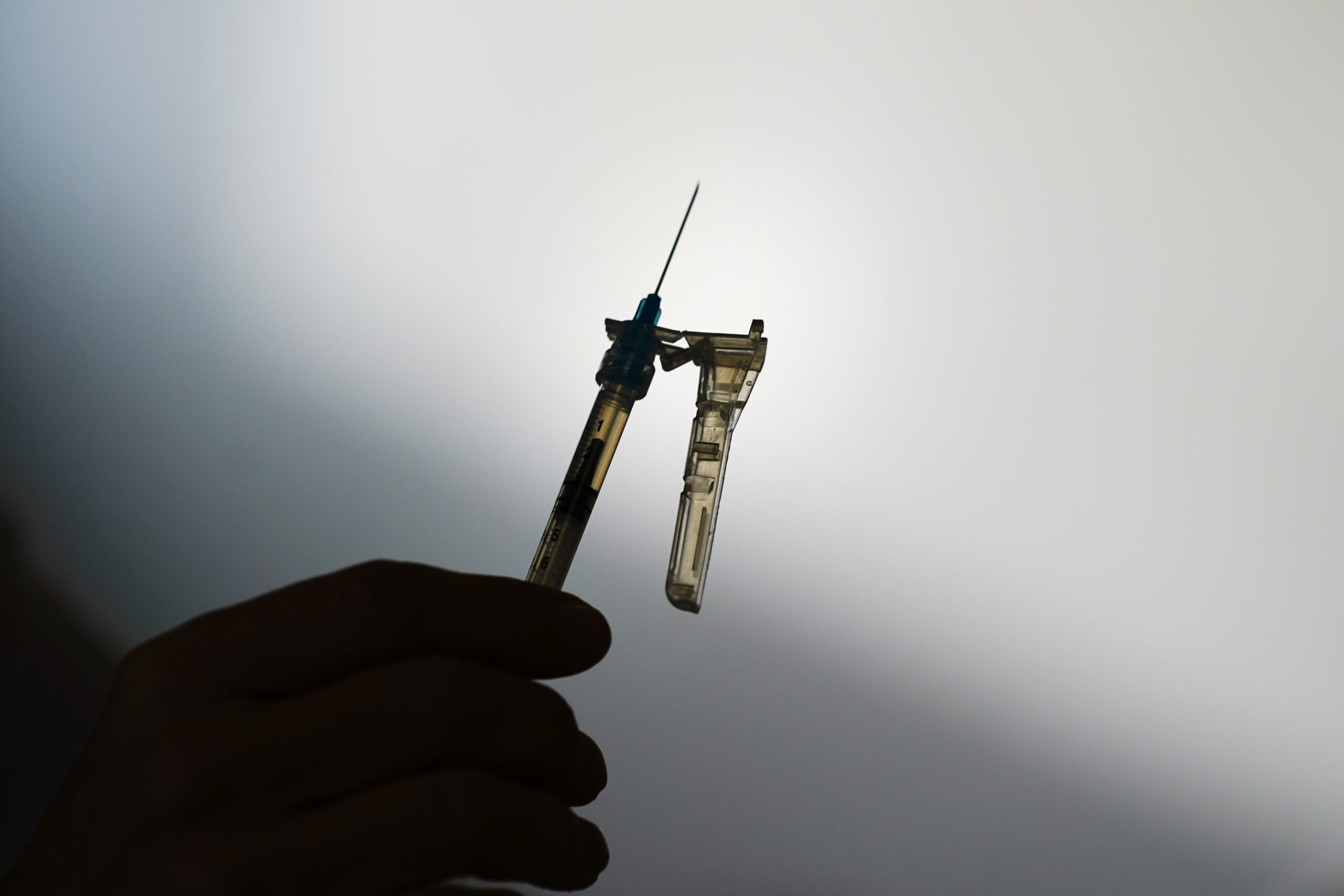WASHINGTON — The Environmental Safety Company is imposing stricter limits on a chemical used to sterilize medical gear after discovering a higher-than-expected most cancers threat at amenities that use ethylene oxide to scrub billions of gadgets together with catheters and syringes.
A rule finalized Thursday will scale back ethylene oxide emissions by about 90% by concentrating on practically 90 business sterilization amenities throughout the nation, the EPA stated. The businesses may even have to check for the antimicrobial chemical within the air and ensure their air pollution controls are working correctly.
The brand new rule will “safeguard public well being from this air pollution–together with the well being of kids, who’re notably susceptible to carcinogens early in life,” stated EPA Administrator Michael Regan. “We’ve arrived at a traditionally robust rule that may defend essentially the most uncovered communities from poisonous air air pollution whereas additionally guaranteeing … safeguards (to) our nation’s crucial provide of sterilized medical gear.”
The American Lung Affiliation known as the rule an necessary step ahead to guard human well being from most cancers attributable to ethylene oxide emissions.
“The science on well being dangers from ethylene oxide reveals each short-term and long-term publicity are harmful for well being,” stated Harold Wimmer, the group’s president and CEO.
Individuals who dwell close to business sterilization amenities usually tend to develop most cancers over their lifetimes, Wimmer stated, including: “Nobody ought to must dwell with elevated most cancers threat due to air air pollution of their neighborhood.”
Learn Extra: Local weather Change Is Rolling Again American Progress on Air Air pollution
Sufferers with lung illness and different well being issues “additionally want entry to protected and clear medical provides,” he stated. “We recognize the work EPA put into guaranteeing that this last rule each cleans up dangerous emissions and ensures continued entry to sterilized medical gear.”
Darya Minovi, a senior analysis analyst with the Union of Involved Scientists, known as the EPA motion overdue.
“For a lot too lengthy, communities throughout the nation—particularly Black and Brown individuals and those that don’t converse English as a primary language—have been uncovered to the cancer-causing chemical ethylene oxide,” Minovi stated in a press release.
“Make no mistake: politically highly effective industries sought to weaken the rule’s health-protective requirements, however the public well being advantages that shall be afforded to communities via this motion are a testomony to the efforts of grassroots advocates and public well being consultants who didn’t let up of their calls for,” she added.
The tightened safeguards are pushed by the EPA’s higher understanding that ethylene oxide’s menace is extreme, Regan stated. The chemical is assessed as a pesticide. A employee in a medical sterilizing plant, over the course of a profession, may see their threat shoot up by as a lot as one further case of most cancers for each 10 individuals uncovered. The EPA’s usually acceptable enhance in lifetime most cancers threat is 1 in 10,000.
Ethylene oxide is a fuel used to sterilize roughly half of all medical gadgets and can also be used to make sure the security of sure spices and different meals merchandise. It’s used to scrub every little thing from catheters to syringes, pacemakers and plastic surgical robes. Temporary publicity isn’t thought of a hazard, however respiration it long run elevates the danger of breast most cancers and lymphoma, the EPA stated.
In 2016, the EPA up to date its evaluation of ethylene oxide’s hazard primarily based on details about uncovered staff at sterilizing amenities, discovering the chemical was many occasions extra threatening than beforehand recognized. Evaluation launched by the company two years later discovered that most cancers threat was too excessive close to some medical sterilization vegetation and another amenities that launch ethylene oxide.
In 2022, the EPA laid out the danger confronted by residents who dwell close to medical sterilization amenities. In Laredo, Texas, for instance, residents and activists fought to scrub up a sterilization facility run by Missouri-based Midwest Sterilization Corp. It was certainly one of 23 sterilizers in america that the EPA stated posed a threat for individuals close by.
Learn Extra: All of the Stuff in Your House That Could Comprise PFAS Ceaselessly Chemical compounds
Sterigenics, a significant sterilization firm, shuttered a medical sterilization plant in a Chicago suburb after monitoring discovered emissions spikes in close by neighborhoods. They finally settled quite a few lawsuits.
Many amenities have sharply decreased ethylene oxide emissions lately, however those who haven’t will now have to fulfill stricter necessities, the EPA stated.
The EPA stated it labored carefully with the Division of Well being and Human Providers and different companies to develop a last rule that facilities on public well being. The rule gives adequate time and suppleness for business amenities to return into compliance, whereas providing robust public well being safety for close by communities and minimizing any potential impacts to the medical machine provide chain, officers stated.
Well being and Human Providers Secretary Xavier Becerra hailed the rule as a victory for staff and fence-line communities that face ongoing risks from ethylene oxide air pollution.
Scott Whitaker, president and CEO of the Superior Medical Expertise Affiliation, stated medical sterilizers present a significant service and lots of gadgets cannot be sterilized by one other methodology.
The business group appreciates EPA’s replace and shall be reviewing the rule, Whitaker stated in a press release Thursday. The business has emphasised the necessity for satisfactory time to implement the rule, “flexibility in applied sciences to take away emissions and the power to attain EPA targets that will not pressure resubmission of medical gadgets for FDA approval,” Whitaker stated.
He stated he stays hopeful that the rule “is not going to have a unfavourable impression on the healthcare system or the sufferers we serve.”
